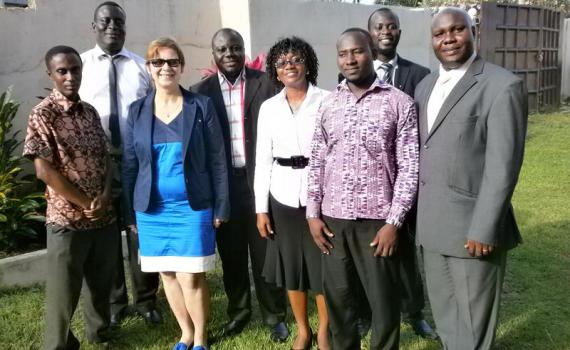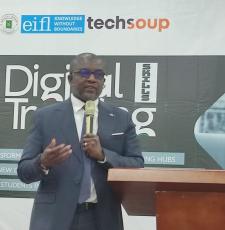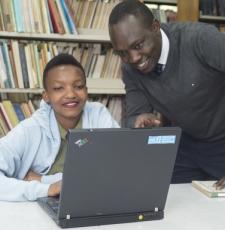
EIFL’s Public Library Innovation Programme (EIFL-PLIP) is delighted to announce a joint project with the Public Libraries Initiative for Development (PLIFOD) to build capacity of librarians to offer innovative public library services that meet community needs in Ghana.
PLIFOD, a new initiative, emerged as a result of the work of an advocacy and awareness raising group supported by EIFL-PLIP in 2011/2012. It is a partnership between the (ghla.org.gh) Ghana Library Authority (GhLA) and the technology social enterprise, TechAide, which is based in Accra, capital of Ghana.
The two partners – TechAide and GHLA – were keen to continue the work started by the advocacy and awareness raising group, to narrow the digital divide in Ghana and intensify the involvement of public libraries in advancing community development.
‘With EIFL’s partnership and support, Ghanaian librarians will benefit from PLIFOD through four capacity building sessions in 2014 to aid development of new ICT services and improve awareness through effective communication and advocacy,’ said Mr Kafui Prebbie, Chief Executive Officer of TechAide.

Thirty out of 63 public libraries from across the country have been selected to take part in the capacity building programme. The participating libraries all have Internet connections and computer laboratories set up by the Ghana Investment Fund for Electronic Communication (GIFEC), a parastatal organization created to facilitate the provision of ICT and internet connectivity in underserved areas of Ghana.
‘Welcome opportunity’

‘We welcome this partnership opportunity. The timing of the PLIFOD training is perfect, as it builds on GIFEC's efforts to equip public libraries in Ghana with ICT.
PLIFOD’s intensive technology and project management training will help ensure that the libraries make the best possible use of their new computers,’ said EIFL-PLIP Programme Manager, Ms Ramune Petuchovaite.
The PLIFOD training also draws on the experience and outcomes of three innovative public library services supported by EIFL-PLIP in Ghana from 2010 to 2013. Since 2010, EIFL-PLIP has supported development of 18 public and community library services that use ICT to meet community needs in six African countries (Ghana, Kenya, South Africa, Tanzania, Uganda and Zambia).

‘Our work in Africa and other parts of the world shows that when libraries are equipped with ICT and staffed by librarians who have the skills and knowledge to use ICT effectively, they can bring positive change to their communities,’ said Ms Petuchovaite.
Each library will send one librarian to take part in four training courses, scheduled to take place from May to December 2014.
The curriculum includes:
- Advanced computer literacy skills;
- Online information and research skills;
- How to develop and implement new and innovative public library services, using ICT, including community needs and impact assessment research training; and
- Communication, advocacy and awareness-raising training for public libraries
During the year, the newly-skilled librarians will be encouraged to initiate innovative services at their libraries.
SHARE / PRINT









